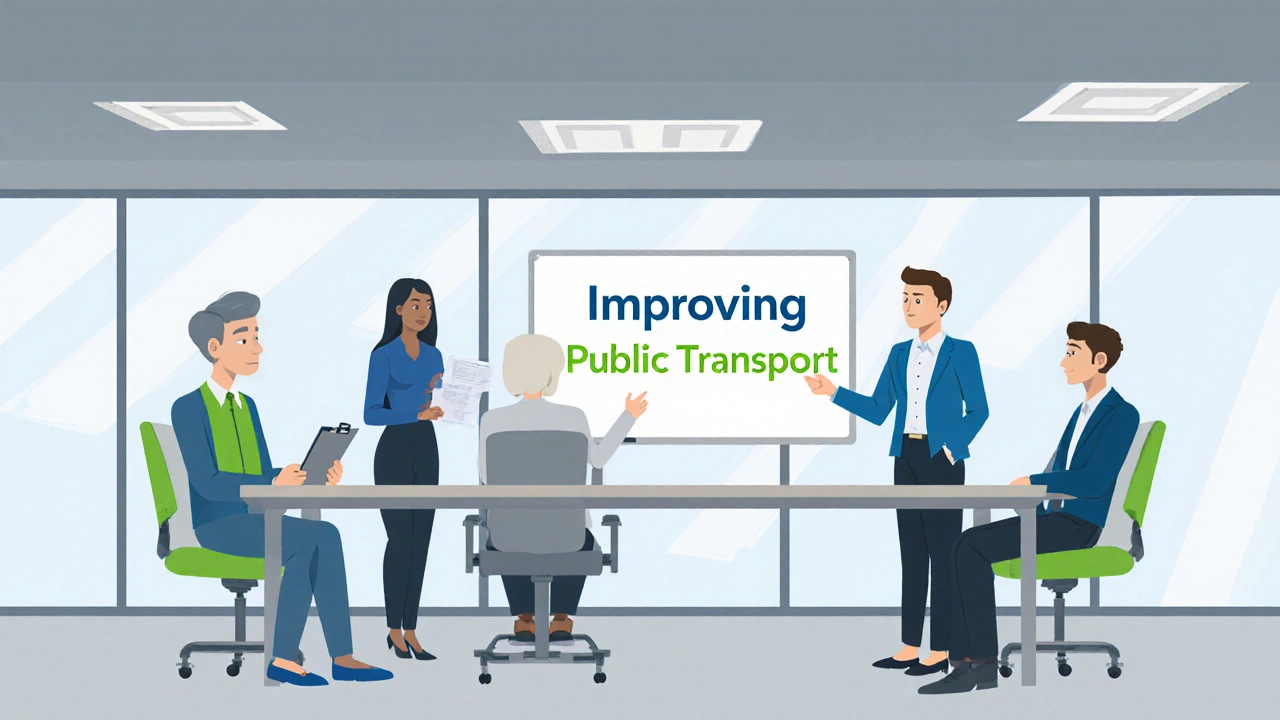
How to Begin a Career in Local Government - Practical Guide
Local Government Career Path Calculator
This tool helps you determine which entry path into local government best matches your current qualifications, experience, and age.
Thinking about a role that lets you shape your community while enjoying stable work? Local government jobs are the backbone of services like waste collection, housing, planning and public health. This guide walks you through the exact steps to move from “I’m interested” to “I’ve landed my first post on the council” - no vague advice, just clear actions you can take today.
Key Takeaways
- Identify the three main entry routes: direct applications, apprenticeships, and traineeships.
- Tailor your CV to showcase community involvement, transferable skills and any relevant qualifications.
- Prepare for common assessment‑centre exercises such as situational judgement tests and role‑plays.
- Use local networking groups and volunteer work to build a relevant experience base.
- Follow a 12‑month plan that covers paperwork, interview prep, on‑the‑job learning and performance reviews.
What Exactly Is Local Government?
In England, the term covers county councils, unitary authorities, borough and district councils, and parish or town councils. Each body is a public sector organisation responsible for delivering services directly to residents. Their remit ranges from maintaining roads to setting local planning policies. Understanding this structure helps you target the right authority for your skills.
Common Entry Paths
Most newcomers start through one of three channels. Below is a quick side‑by‑side look.
| Route | Typical duration | Key requirement | Who it suits |
|---|---|---|---|
| Direct application | Permanent role | Relevant qualifications or experience | Graduates, career changers |
| Apprenticeship | 2‑3 years | GCSEs + willingness to learn on the job | 18‑25 year olds, school leavers |
| Traineeship | 12‑24 months | Basic numeracy + community interest | Those needing a foothold before a full apprenticeship |

Preparing Your Application
When a vacancy pops up, the first thing you’ll see is a vacancy notice on the council’s website or on the Civil Service Jobs portal. Here’s a checklist to beat the applicant tracking system:
- Read the person specification line by line. Highlight any exact phrases - they often reappear in the short‑listing algorithm.
- Draft a CV that mirrors those phrases. Use bullet points like “Deliver community‑focused service improvements” rather than generic statements.
- Write a concise covering letter (max 300 words). Open with a strong hook: “Growing up in Birmingham, I’ve seen how effective waste‑reduction programmes improve neighbourhood health.”
- Attach any required certificates - for example a Level3 Diploma in Public Services.
- Proof‑read for spelling and grammar. A single typo can send a good candidate straight to the reject pile.
What Happens at the Assessment Centre?
About 60% of councils use an assessment centre to test situational judgement, written communication and teamwork. Typical exercises include:
- Situational Judgement Test (SJT): You’ll read short scenarios and choose the best response. The trick is to balance policy adherence with community empathy.
- Role‑play: An assessor plays a resident with a complaint, and you must resolve it while staying within council procedures.
- Group discussion: A topic like “Improving public transport” appears. Show you can listen, build on others’ ideas and stay on track.
- Written exercise: Draft a short briefing note - keep it clear, use headings, and limit jargon.
Preparation tips:
- Practice SJTs from the Civil Service website - they publish sample questions every year.
- Record a mock role‑play with a friend. Review your tone and body language.
- Read recent council meeting minutes to understand current priorities.
- Plan a one‑page template for briefing notes - headings, purpose, recommendation, next steps.
Building Relevant Experience Before You Apply
Even if you don’t have a formal public‑sector job, you can demonstrate the right skills. Here are three low‑cost ways to get noticed:
- Volunteer for a local food bank or community garden. Highlight coordination, budgeting and stakeholder communication.
- Join a town‑council advisory group (many councils have youth panels). It gives you insight into policy‑making processes.
- Take a short online course on data protection (GDPR) or community planning - platforms like FutureLearn often run free versions.
When you list these activities, link them directly to the competencies in the job description: “Managed a £2,000 grant for a neighbourhood clean‑up - aligns with financial stewardship requirement.”

What the First Year Looks Like
Once you secure a post, the learning curve is steep but manageable. Typical milestones include:
- Induction week: You’ll meet the HR team, learn the council’s IT systems, and sit through health‑and‑safety briefings.
- Mentor assignment: Most councils pair new starters with a senior officer who can answer day‑to‑day questions.
- Monthly training: Topics range from “Effective Public Communication” to “Council‑wide Procurement Procedures.”
- Performance review at 6 months: Use this as a chance to ask for more responsibility - e.g., lead a small community project.
- Annual appraisal: Sets your professional development plan for the next year, often including sponsorship for a relevant diploma.
Staying proactive during this period pays off. Ask to sit in on policy meetings, request feedback after each task, and keep a log of achievements - it makes future promotions much easier.
Next Steps & Troubleshooting
If you’ve followed the steps above but still hear radio silence, try these fixes:
- Revise your CV keywords: Use the exact phrases from the person specification. ATS software looks for matches.
- Network locally: Attend council open days or community events. A personal connection can move your application forward.
- Seek feedback: If rejected, politely ask the HR officer what area you could strengthen.
- Expand your search: Smaller district councils often have fewer applicants and a quicker hiring cycle.
Remember, persistence is part of the public‑service culture. Most successful candidates apply multiple times before landing their first role.
Frequently Asked Questions
Do I need a degree to get a council job?
A degree helps for senior policy roles, but many entry‑level positions are open to candidates with GCSEs, relevant experience, or an apprenticeship qualification.
What’s the difference between an apprenticeship and a traineeship?
Apprenticeships combine paid work with a formal qualification (usually Level3 or 4) and last 2‑3years. Traineeships are shorter, focus on building basic skills, and often act as a stepping stone to an apprenticeship.
How can I practice the situational judgement test?
The Civil Service offers free practice SJTs on its website. Additionally, you can download sample tests from local authority recruitment pages and time yourself to build confidence.
Are there paid volunteer opportunities that count as experience?
Yes. Some councils fund volunteer coordinators for community projects. Even unpaid roles can be listed as “paid‑equivalent” if you received a stipend or reimbursement for expenses.
What should I ask during my interview?
Inquire about the council’s current strategic priorities, the team’s biggest challenges, and opportunities for professional development after the first year. Showing genuine curiosity signals you’re thinking long‑term.






Write a comment